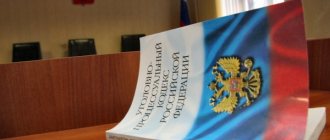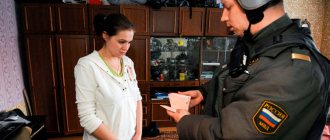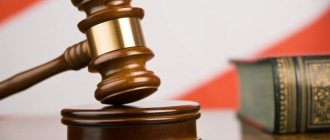1. A witness is a person who may be aware of any circumstances relevant to the investigation and resolution of a criminal case, and who is called to testify.
2. Summoning and questioning of witnesses is carried out in the manner established by Articles 187 - 191 of this Code.
3. The following are not subject to questioning as witnesses: 1) a judge, a juror - about the circumstances of the criminal case that became known to them in connection with their participation in the proceedings in this criminal case; 2) lawyer, defender of the suspect, accused - about the circumstances that became known to him in connection with the application to him for legal assistance or in connection with its provision; 3) lawyer - about the circumstances that became known to him in connection with the provision of legal assistance; 4) the clergyman - about the circumstances that became known to him from confession; 5) a member of the Federation Council, a deputy of the State Duma without their consent - about the circumstances that became known to them in connection with the exercise of their powers; 6) an official of the tax authority - about the circumstances that became known to him in connection with the information provided contained in a special declaration submitted in accordance with the Federal Law “On the voluntary declaration by individuals of assets and accounts (deposits) in banks and on amendments to certain legislative acts of the Russian Federation” and (or) documents and (or) information attached thereto.
4. A witness has the right: 1) to refuse to testify against himself, his spouse and other close relatives, the circle of whom is determined by paragraph 4 of Article 5 of this Code. If a witness agrees to testify, he must be warned that his testimony may be used as evidence in a criminal case, including in the event of his subsequent refusal to testify; 2) give evidence in his native language or a language he speaks; 3) use the help of a translator for free; 4) challenge the interpreter participating in his interrogation; 5) submit petitions and bring complaints against the actions (inaction) and decisions of the inquiry officer, the head of the inquiry unit, the head of the inquiry body, the inquiry body, the investigator, the prosecutor and the court; 6) appear for questioning with a lawyer in accordance with part five of Article 189 of this Code; 7) apply for the application of security measures provided for in part three of Article 11 of this Code.
5. A witness cannot be forcibly subjected to a forensic examination or examination, except for the cases provided for in part one of Article 179 of this Code.
6. A witness does not have the right: 1) to evade appearing when summoned by an inquiry officer, investigator or to court; 2) knowingly give false testimony or refuse to give testimony; 3) disclose preliminary investigation data that became known to him in connection with participation in criminal proceedings, if he was warned about this in advance in the manner established by Article 161 of this Code.
7. In case of evasion of appearance without good reason, the witness may be brought in.
8. For giving knowingly false testimony or refusing to give testimony, the witness is liable in accordance with Articles 307 and 308 of the Criminal Code of the Russian Federation.
9. For the disclosure of preliminary investigation data, the witness is responsible in accordance with Article 310 of the Criminal Code of the Russian Federation.
Who can act as a witness
A witness may be a legally competent person who:
- is an eyewitness to the crime;
- has information about the crime (such an assumption is sufficient).
An individual receives the rights of a witness in a criminal case and obligations from the moment he is summoned to court, to an investigator or interrogating officer in the manner prescribed by the Code of Criminal Procedure.
At the same time, Art. 56 of the Criminal Code of the Russian Federation provides a list of persons who cannot testify. These include:
- Judge and jury. They cannot testify about a case if information about it became known during its consideration.
- Representatives of the suspect's defense. They cannot testify if the information became known in the process of working with the client. The exception is situations where the summons to court as a witness was initiated by the defense itself.
- Clergyman. He cannot disclose during criminal proceedings information that he learned about in the confession of any person.
- Member of the Federation Council and deputy of the State Duma. They may not testify if the information became known in the course of their official duties.
- Tax officer. He cannot report information if it is known from a tax return.
- Arbitrator. He cannot disclose information that he received during the arbitration proceedings.
Article 56. Witness
Article 56. Witness
[Code of Criminal Procedure] [Part One] [Section II] [Chapter 8]
. A witness is a person who may be aware of any circumstances relevant to the investigation and resolution of a criminal case, and who is called to testify, except for the cases provided for in part three of this article.
. Summoning and questioning of witnesses is carried out in the manner established by Articles 187 - 191 of this Code.
. The following are not subject to questioning as witnesses:
- 1) judge, juror - about the circumstances of the criminal case that became known to them in connection with participation in the proceedings in this criminal case;
- 2) lawyer, defender of the suspect, accused - about the circumstances that became known to him in connection with the application to him for legal assistance or in connection with its provision, except for cases where the lawyer, defender of the suspect, accused applies for questioning as a witness with the consent of and in the interests of the suspect, accused;
- 3) lawyer - about the circumstances that became known to him in connection with the provision of legal assistance, except for cases where the lawyer applies for questioning as a witness with the consent of the person to whom he provided legal assistance;
- 4) the clergyman - about the circumstances that became known to him from confession;
- 5) a member of the Federation Council, a deputy of the State Duma without their consent - about the circumstances that became known to them in connection with the exercise of their powers;
- 6) an official of the tax authority - about the circumstances that became known to him in connection with the information provided contained in a special declaration submitted in accordance with the Federal Law “On the voluntary declaration by individuals of assets and accounts (deposits) in banks and on amendments to certain legislative acts of the Russian Federation” and (or) documents and (or) information attached thereto;
- 7) arbitrator (arbitrator) - about the circumstances that became known to him during the arbitration (arbitration proceedings).
. The witness has the right:
- 1) refuse to testify against oneself, one’s spouse and other close relatives, the circle of whom is determined by paragraph 4 of Article 5 of this Code. If a witness agrees to testify, he must be warned that his testimony may be used as evidence in a criminal case, including in the event of his subsequent refusal to testify;
- 2) give evidence in his native language or a language he speaks;
- 3) use the help of a translator for free;
- 4) challenge the interpreter participating in his interrogation;
- 5) submit petitions and bring complaints against the actions (inaction) and decisions of the inquiry officer, the head of the inquiry unit, the head of the inquiry body, the inquiry body, the investigator, the prosecutor and the court;
- 6) appear for questioning with a lawyer in accordance with part five of Article 189 of this Code;
- 7) apply for the application of security measures provided for in part three of Article 11 of this Code.
. A witness cannot be forcibly subjected to a forensic examination or examination, except for the cases provided for in part one of Article 179 of this Code.
. The witness has no right:
- 1) evade appearing when summoned by an inquiry officer, investigator or to court;
- 2) knowingly give false testimony or refuse to give testimony;
- 3) disclose preliminary investigation data that became known to him in connection with participation in criminal proceedings, if he was warned about this in advance in the manner established by Article 161 of this Code.
. If a witness evades appearing without good reason, he or she may be brought into custody.
. For giving knowingly false testimony or refusing to give testimony, the witness is liable in accordance with Articles 307 and 308 of the Criminal Code of the Russian Federation.
. For the disclosure of preliminary investigation data, the witness is responsible in accordance with Article 310 of the Criminal Code of the Russian Federation.
Bringing a witness to testify
The witness is called in accordance with Art. 188 Code of Criminal Procedure of the Russian Federation. He is given a subpoena, which specifies the time, place of testimony, and what case he needs to testify about.
The summons may be served:
- in person against receipt;
- by transmission via communications;
- through a family member (adult);
- through the administration of the organization where the witness works.
A witness who has been summoned for questioning in the manner prescribed by law must appear on time or inform the investigative authorities in advance of the existence of valid reasons for failure to appear.
If a witness fails to appear at the appointed place and time without good reason, he may be brought to court in accordance with Article 113 of the Code of Criminal Procedure of the Russian Federation. The bringing of a witness in a criminal case involves his forced delivery to the court, to the investigator or interrogator. The procedure is not performed at night.
Minors under 14 years of age, pregnant women, and persons who cannot leave their place of stay due to health conditions (a doctor’s certificate is required) are not forcibly brought to investigative authorities to give evidence.
The norms introduced into the Code of Criminal Procedure seriously violate the right to defense
January 14, 2022 2:09 pm
The FPA of the Russian Federation commented on the changes in the Code of Criminal Procedure of the Russian Federation, which determine the procedure for conducting interrogation, confrontation and identification in a remote format
As
reported , on December 30, 2022, Russian President Vladimir Putin signed Federal Law No. 501-FZ “On Amendments to the Criminal Procedure Code of the Russian Federation” (hereinafter referred to as Law No. 501-FZ), regulating interrogation, confrontation and identification by video conferencing.
At the stage of consideration of the bill in the State Duma of the Federal Assembly of the Russian Federation, it was envisaged that the procedure for conducting only online interrogations would be enshrined in the Code of Criminal Procedure of the Russian Federation. On January 10, 2022, Law No. 501-FZ came into force. The Federal Chamber of Lawyers of the Russian Federation expressed opinions on some of its provisions. Member of the Council of the FPA RF Tatyana Protsenko emphasized that conducting a remote interrogation without infringing on the rights of the suspect or accused is possible only with the consent of the defense, and conducting a confrontation and identification through videoconferencing violates the essence of these procedural actions. According to the State Secretary of the FPA of the Russian Federation, Konstantin Dobrynin, in all cases it is absolutely impossible to agree with the remote method of conducting confrontations and especially identifications, since the reliability of such procedural actions and their results will be a priori very doubtful. Let us recall that Law No. 501-FZ defines the powers of the investigator and the interrogating officer to give, respectively, to the investigator, the interrogating officer or the inquiry body in the manner prescribed by Art. 189.1 of the Code of Criminal Procedure of the Russian Federation, a mandatory written order to organize the participation in the investigative action of a person whose participation is recognized as necessary.
In particular, Art. 189.1, according to Part 1 of which the investigator or interrogating officer has the right to conduct an interrogation, confrontation, identification by using the videoconferencing of the state bodies conducting the preliminary investigation, if there is a technical possibility according to the rules of Art. 164 and ch. 26 of the Code of Criminal Procedure of the Russian Federation, taking into account the features established by Art. 189.1 of the Code.
Thus, if it is necessary to conduct an interrogation, a confrontation, or a high-confidence identification, the investigator or interrogator entrusted with the investigation shall send to the investigator, interrogator or the inquiry body at the location of the person whose participation is necessary a written order to organize his participation in the investigative action. The protocol is drawn up in compliance with the requirements of the Code of Criminal Procedure of the Russian Federation, taking into account the peculiarities of its signing, established by Art. 189.1 of the Code, by the investigator or investigator entrusted with the investigation. It indicates the date, time and place of the investigative action at the place of both the preparation of the protocol and the location of the person specified in Part 2 of Art. 189.1 Code of Criminal Procedure of the Russian Federation.
Records about the explanation of the participants of the investigative action, who are outside the place of investigation, of their rights, duties, responsibilities and the procedure for conducting the investigative action, as well as about the announcement of the protocol to them, are certified by the signatures of the participants in the investigative action, for which a signature is taken from them. It is also noted that during investigative actions it is mandatory to use video recordings, the materials of which are attached to the protocol of the investigative action. At the same time, conducting an interrogation, confrontation, or identification using videoconferencing systems is not allowed if there is a possibility of disclosing a state or other secret protected by federal law or data about a person in respect of whom security measures have been taken.
Big concerns
Member of the Council of the FPA RF Tatyana Protsenko noted that interrogation of a witness using videoconferencing is already quite widely used in the judicial investigation process. And often it is necessary for the defense when the witness, for one reason or another, cannot appear in the court hearing the case, but the defense lawyer has questions and the disclosure of evidence during the preliminary investigation is not enough. At the stage of preliminary investigation, such a possibility was not provided for by the Criminal Procedure Code of the Russian Federation, and the introduction of this norm into the Criminal Procedure Code of the Russian Federation is necessary and timely, but taking into account quite serious restrictions. Unfortunately, in the form in which this norm was introduced into the Code of Criminal Procedure of the Russian Federation, it seriously violates the right to defense, believes a member of the Council of the FPA of the Russian Federation.
Tatyana Protsenko emphasized that conducting a remote interrogation without infringing on the rights of the suspect or accused is possible only with the consent of the defense, since such a procedure may leave unresolved doubts about the reliability of the testimony and the legality of the process of obtaining it, which can only be interpreted in favor of the accused. However, changes made to the Code of Criminal Procedure of the Russian Federation provide for such an interrogation to be carried out by the decision of the investigator without taking into account the opinion of the defense.
According to a member of the Council of the FPA of the Russian Federation, “the introduction into the Code of Criminal Procedure of the Russian Federation of the possibility of conducting confrontations and identification through videoconferencing raises great concerns, since it violates the essence of these procedural actions, however, it allows the investigation to procedurally consolidate the “dubious result”.”
A confrontation is a simultaneous interrogation of two persons, in which not only the investigator asks questions to the participants, but also the participants have the right to ask questions to each other. This investigative action is carried out with the aim of eliminating contradictions in the testimony of different persons, and it is achieved by some kind of “psychological influence” (not everyone can slander a person by looking into his eyes). “This is the value of a confrontation,” Tatyana Protsenko clarified. – When assessing evidence, the court places more confidence in the testimony given at the confrontation than in the testimony given during interrogation. A confrontation conducted remotely is devoid of all these nuances and is essentially an ordinary remote interrogation. At the same time, the court will evaluate it precisely as a confrontation.”
Tatyana Protsenko believes that, perhaps, in some cases, a remote method of conducting a confrontation may be acceptable for the defense, but then it should be carried out only with the consent of the accused and the defense lawyer, and not by the sole decision of the investigator.
Carrying out remote identification, according to Tatyana Protsenko, is completely impossible. The law provides for the right of a defense attorney to be present at the identification parade, to submit motions, and to make comments in the protocol of the investigative action. When conducting an identification process using videoconferencing, the lawyer will not be able to physically be present in two places at the same time - both in the place where the suspect is located and in the place where the identifying person (victim, witness) is located.
“In fact, the investigative action will be carried out in the place where the identifying officer is located, and where the suspect is, there will simply be a demonstration of identifiable persons and extras. A lawyer will simply not be able to ensure the legality of such a procedure and prevent unfair influence on the identifier by law enforcement agencies, which occurs quite often,” noted a member of the Council of the FPA of the Russian Federation.
The law needs to be clarified
State Secretary of the FPA RF Konstantin Dobrynin expressed the opinion that the method of remote interrogation of a witness, specialist or expert in a criminal case using the capabilities of reliable communication channels is a progressive legislative solution (Konstantin Dobrynin outlined his position in detail in his opinion). According to him, the initiative for “remote interrogation” appeared about seven years ago; lawyers and Konstantin Dobrynin himself participated in its development. Initially, it was assumed that remote interrogation would be an optional method of obtaining testimony, for the use of which it was proposed to establish legislative restrictions, as well as to find out the opinion of participants in such procedural actions regarding the possibility and feasibility of conducting remote interrogation.
Konstantin Dobrynin noted that when conducting an interrogation through videoconferencing, the question of the order in which documents, other written materials, and material evidence are presented and examined during this investigative action must be technically precisely resolved, and how the documents and other materials presented by the witness are added to the case. If this cannot be done reliably and correctly for the subsequent assessment of evidence, then remote interrogation itself using such materials is obviously impossible. And all this, of course, must be accurately and fully reflected in the law, the State Secretary of the FPA of the Russian Federation clarified.
In his opinion, in all cases it is absolutely impossible to agree with the remote method of conducting confrontations and especially identifications, since the reliability of such procedural actions and their results will be a priori very doubtful. Moreover, this method of conducting them, for obvious reasons, significantly facilitates the possibility of exerting an unacceptable influence on key participants, first of all, on the identifying person, as well as on the “disconnected” participants in the confrontation.
Konstantin Dobrynin noted that now the task of the lawyer community is to monitor in the near future the practice of applying Law No. 501-FZ, to consolidate and systematize information about any abuses and violations in the bodies of the lawyer corporation and, if there are any, to contact the Federal Assembly of the Russian Federation with specific proposals for clarification of the adopted law. The State Secretary of the FPA RF is convinced that Law No. 501-FZ should be clarified.
Anna Storozhenko
SharePrint Direct link to the material:
Share
Responsibilities of a witness in criminal proceedings
A witness during an investigation and trial has a number of responsibilities, namely:
- appear on time to testify;
- give exclusively truthful testimony. For giving false testimony, liability is provided in accordance with Art. 307 of the Criminal Code of the Russian Federation. We will tell you more about penalties here
The witness is prohibited from disclosing any information that became known to him during the proceedings, but provided that he was warned in advance of liability for this in accordance with Art. 161 Code of Criminal Procedure of the Russian Federation.
Witness protection
To ensure that testifying does not have negative consequences for the witness, the Code of Criminal Procedure provides for its protection. The protective measures are as follows:
- Possibility to testify under a pseudonym.
- Identification of a suspect in conditions where the latter cannot see the witness.
- Conducting a court hearing behind closed doors.
- Giving evidence by a witness in court without disclosing personal information, as well as in conditions where visual contact of the witness with other participants in the process is excluded.
The difference between an attesting witness and a witness is that the latter gives evidence about the progress or details of the crime, while the attesting witness is involved in observing investigative activities within the framework of an already committed unlawful act.









